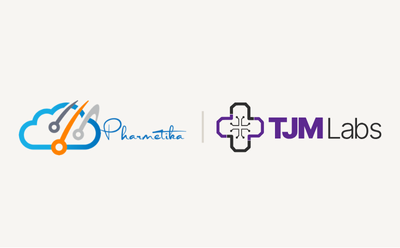Why AI Automation Is the Future of Pharmacy Operations

Pharmacies are under pressure. Prescription volumes keep rising, staff shortages persist, and operational demands grow more complex. Traditional tools cannot keep up. They still rely heavily on manual input that drains time and limits scalability.
AI-driven automation, seamlessly integrated into existing workflows, is now essential. It reduces administrative workload, strengthens accuracy, and gives pharmacy teams the capacity to focus on patient care. For pharmacies that want to sustain growth and deliver quality care, automation is no longer optional. It is the foundation for the future.
Why Manual Pharmacy Workflows Increase Errors and Costs
Pharmacy staff spend hours each day on repetitive, low-value tasks such as e-prescription entry, demographic updates, refill management, and label generation.
These administrative tasks strain technician time and increase the risk of error. One retrospective report found that 26% of dispensing errors occurred during the data entry phase, and technicians were responsible for most of those mistakes.
Every hour devoted to administrative tasks is time not spent with patients. Without automation, pharmacies risk overwork, bottlenecks, and burnout.
How AI Pharmacy Automation Improves Accuracy and Efficiency
AI agents powered by vision large language models (VLLMs) are designed for this reality.
How they work:
- Interface-first. Agents interact directly with the PMS, just as a human would.
- Adaptable. They recognize and respond to screen changes.
- Scalable. One agent can process hundreds of prescriptions per day.
What they do:
- Automate prescription intake and fax entry.
- Update patient data from connected portals.
- Manage refill programs and benefits inquiries.
- Generate and print labels without staff intervention.
These capabilities free human talent for patient care, clinical counseling, and high-value work.
Our Dual-Expert Model™ for Pharmacy Automation Success
TJM Labs approaches automation differently. Every implementation pairs a pharmacist with an engineer. This Dual-Expert Model™ ensures accuracy and adaptability from day one.
- Pharmacists align automation with clinical protocols.
- Engineers customize workflows to your systems.
- Together, they test for accuracy, compliance, and reliability.
- Support continues as workflows evolve.
This collaborative model is our advantage. It is how we deliver automation that works in real pharmacies, not just in theory.
Proof in Action: Gifthealth Pharmacy Automation at Scale
The Dual-Expert Model™ is not just a theory. It has delivered measurable results for pharmacies at scale.
Gifthealth faced growing prescription demand but could not add staff. Manual processes created bottlenecks and slowed growth.
Within six weeks of deploying 150 AI agents through TJMLabs’ Dual-Expert Model™, Gifthealth transformed its operations:

Processing time per prescription dropped from 90 seconds to 30 seconds. Staff shifted from data entry to patient care. Compliance improved through standardized, automated workflows.
Gifthealth’s experience shows what is possible when automation is implemented with both technical and clinical expertise. These kinds of outcomes are now within reach for pharmacies everywhere.
Pharmacy Automation Market Growth and Trends
The pharmacy automation market is expanding quickly.
- The U.S. market reached $2.73 billion in 2023 and is projected to exceed $5 billion by 2030, growing at a 9.2% CAGR
- Globally, the market was $6.6 billion in 2024 and is expected to hit $16.76 billion by 2034 (9.8% CAGR)
- The central fill and micro-fulfillment segment alone is projected to grow from $0.79 billion in 2025 to $1.35 billion by 2030 (11.3% CAGR)
Automation is not a future trend. It is becoming an industry standard. Pharmacies that adopt it gain speed, scale, and resilience. Pharmacies that wait risk falling behind.
Pharmacy Automation FAQs
Does TJM Labs’ AI automation work with all pharmacy management systems(PMS)?
Yes. Agents interact directly with PMS interfaces. No APIs are required, ensuring broad compatibility.
Is TJM Labs’ pharmacy automation HIPAA compliant and secure?
Yes. Agents run within your infrastructure. No data ever leaves your environment.
Can pharmacy automation adapt if our workflows change?
Our model ensures AI agents are continuously updated as your business evolves.
Do pharmacies need a dedicated IT team to run AI automation?
Minimal IT involvement is needed. Our teams handle setup and testing, with your IT staff overseeing infrastructure.
How much maintenance does pharmacy automation require?
Very little. We monitor performance and update agents as needed.
What’s Next for AI in Pharmacy Operations
Pharmacy operations no longer need to be limited by staffing hours or manual throughput. Automation keeps workflows running, scales prescription processing to meet demand, and reduces the strain on staff.
For pharmacies, this means uninterrupted capacity, greater accuracy, and the ability to grow without burning out teams. AI is already delivering this impact today, and it will continue to expand the possibilities for efficiency, accuracy, and growth in the years ahead.
AI automation is not about replacing staff. It is about empowering them. By removing the burden of manual tasks, pharmacies can scale, reduce burnout, and focus on patients.
With deep domain expertise and a proven implementation model, TJM Labs delivers automation that works. It is the foundation for the future of pharmacy.

Stop hiring more. Start automating smarter.






.png)


.avif)
